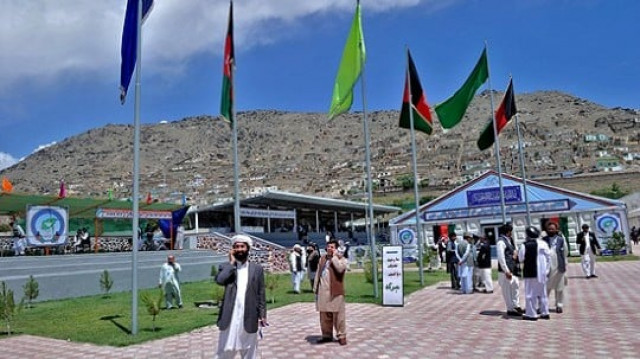Afghan jirga’s resolutions ‘nice on paper’: analysts

At its conclusion on Friday the jirga produced a 16-point resolution which included a call for the removal of militant leaders from a UN terrorist blacklist, among them Mullah Mohammad Omar and Gulbuddin Hekmatyar.
Political analyst Ahmad Sayeedi is among those sceptical about the exercise.
“The decisions made are very good but are not practical since the government cannot implement any of them,” Sayeedi told AFP. “They just look nice on paper and are idealistic.”
“There is no specific mechanism for peace and talks with Taliban. If the government could implement the jirga’s suggestions they would have done so years ago,” Sayeedi added. The jirga advised the government act “immediately” on seeking the removal of the names of militant leaders from a blacklist drawn up by the UN Security Council in response to the September 11 2001 attacks on the US.
The list designated as terrorists Taliban and Al-Qaeda leaders who were then based in Afghanistan, and helped to provide a UN-sanctioned justification for the US-led invasion of the country in November 2001.
“Removing those names from the blacklist would mean the leaders are no longer considered terrorists and that would undermine the military presence of foreign forces here, making it an occupation,” Sayeedi said.
“That is why it is not practical at all,” he said.
Leaders of the Taliban insurgency have said they will negotiate with the Afghan government only after foreign forces have left the country and the Afghan constitution has been amended. “I do not think the decisions made at the jirga will convince the opposition to come and join the peace process,” said another political analyst and commentator, Waheed Mujda.
“Most of the points in the declaration were a repetition of what has been said over the past years... the decisions made means that the Taliban must come and surrender and I don’t think the Taliban will accept this,” he said. Some analysts and diplomats consider the jirga a success for giving Afghan President Hamid Karzai broad-based public support for his peace plan and for applying pressure on the militants.
The US embassy in Kabul welcomed the jirga’s outcome.
“These discussions are the beginning of a process that we believe can help bring stability to Afghanistan and long-desired peace to its people,” the embassy said in a statement.
Published in the Express Tribune, June 7th, 2010.



















COMMENTS
Comments are moderated and generally will be posted if they are on-topic and not abusive.
For more information, please see our Comments FAQ